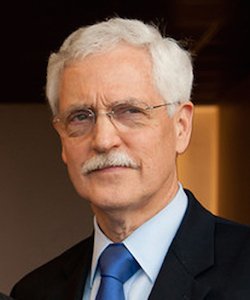ALS Research Update
THANK YOU LETTER FROM DR. ROBERT H. BROWN JR., D. PHIL., M.D.
On behalf of all of us on the ALS research team at UMass Chan Medical School, our heartfelt thanks for your continued, extraordinary support of our ALS research projects. Your generosity has facilitated some of the most innovative work we do, and has accelerated our efforts to develop human clinical trials in ALS.
It can truly be said that there has been meaningful progress in the quest to find treatments for ALS. Much has been accomplished in understanding the basic biology of this disease. See message and research update from Dr. Brown
In the Angel Fund ALS research program, new methods of gene analysis are defining critical events that trigger motor neuron pathology, both in mouse models of ALS and in humans. At multiple laboratories, including those at UMass Chan Medical School (UMCMS), fresh insights into the role of non-neuronal cells have emerged, implicating specific pathways of inflammation in the brain and spinal cord.
A consortium of investigators, including the UMCMS team, has conducted a study of nearly 30,000 ALS cases and more then 120,000 controls that identified multiple new genetic risk factors for ALS. The search for biomarkers that indicate ALS disease activity has also advanced across multiple centers this year.
At UMCMS, investigators funded by the Angel Fund, have developed a new type of physiological biomarker for motor neurons that we anticipate could have wide application across many motor neurons diseases. And therapeutic advances have continued. In the last three years, the UMCMS team has done 3 first-in-human trials of biological therapies for familial ALS.
One, as recently reported, relied on extensive Angel Fund support to document that it is possible to suppress the C9orf72 gene in a human. An expanded trial to silence the C9orf72 gene is being planned.
More generally, the UMCMS clinical trials team has participated in multicenter trials. One study sponsored by the Cambridge company Amylyx showed benefit in slowing disease course and increasing survival in ALS; hopefully, this will be approved by the FDA for widespread use. And there are numerous exciting studies either in clinical trials or in the preclinical pipeline.
As we continue into 2026, we anticipate even more momentum in ALS investigations, confident that there will be sustained progress in the development of meaningful ALS therapies.
Let me again tell you how grateful we are for your support of our ALS investigations. It is not an exaggeration to say that the generous funding raised by the Timlin Race has profoundly benefited ALS research and brought the whole field closer to a cure for ALS. We look forward to seeing you on race day!
You see and listen to some of the researchers and their updates by clicking here.
Sincerely,
Robert H. Brown, Jr., D.Phil., M.D.
The Leo P. and Theresa M. LaChance Chair in Medical Research and professor of neurology
UMass Chan Medical School
55 Lake Avenue, North
Worcester, MA 01655


